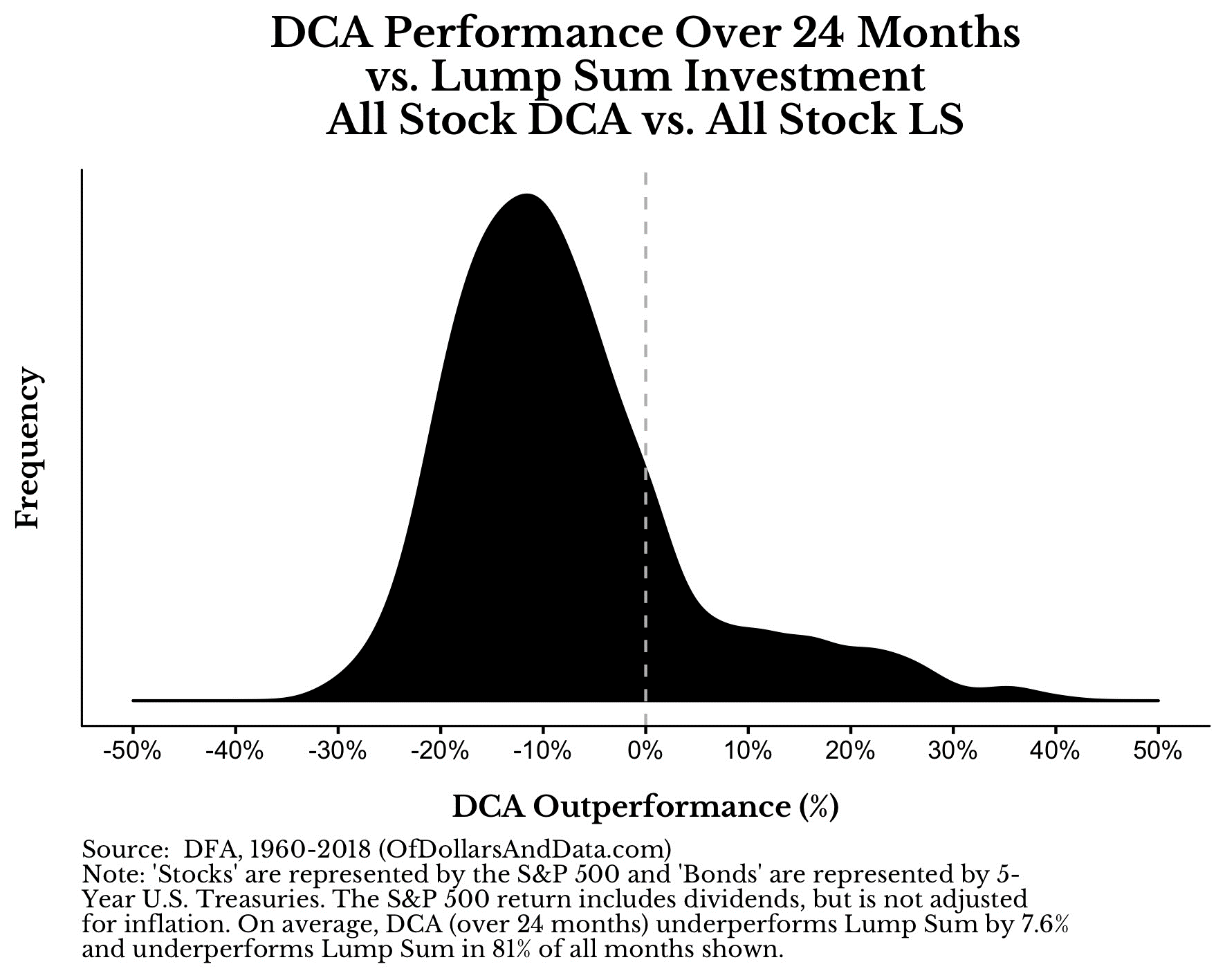Dollar-cost averaging has long been espoused by the likes of Warren Buffett and Benjamin Graham as a savvy way to mitigate risk and build a portfolio by investing a fixed amount of cash regularly over a period of time. Slow and steady wins the race. Timing the market is a loser’s game. Etc.
But is that tried-and-true approach better than putting a lump sum to work all in one leap into equities? Or even fixed income?
In a deep dive hailed as a «game-changer» by Reformed Broker blogger Josh Brown, Ritholtz Wealth Management analyst Nick Maggiulli found it’s almost always better to invest a wad of cash right away rather than average-in over time.
«Sitting in cash (or even in T-bills) simply doesn’t pay compared to the markets because most markets have a long term positive trend,» he wrote, adding that even an ultraconservative approach — loading up on bonds — is the better option.
«My results show that any stock/bond portfolio combination (even a 100% bond portfolio!) would have, on average, outperformed a 24-month DCA [dollar-cost averaging] into an all-stock portfolio,» Maggiulli explained. «If that statement doesn’t shock you, let me make it more concrete.»
He used $2.4 million as an example. If you were fortunate enough to have that much money to put to work, would you be better off investing all of it immediately or putting $100,000 a month in the market for the next two years?
«My analysis shows that you would have been better off had you invested all $2.4 million into any stock/bond portfolio combination (80/20 stock/bond, 20/80 stock/bond, etc.) at the beginning instead of averaging-in over time,» he said.
He used this animated graphic to capture his point:

Even in the most conservative example, where the lump sum is invested completely in fixed income, it outperforms DCA by 0.9%, on average, and is the better choice in about half of all 24-month buying windows, he discovered.
«Think about how profound this is,» Maggiulli wrote in his Of Dollars and Data blog. «Over the last 60 years there has basically been a 50-50 shot that a 24-month DCA into an all-stock portfolio would underperform an initial lump sum investment into an all-bond portfolio! This is nuts.»
His takeaway is that if you ever come into a windfall, you’d be far better off putting the money in play rather than keeping powder dry on the sidelines.
«As the phrase goes, ‘Time in the market beats timing the market,'» Maggiulli wrote. «Why? Because every day your money isn’t working for you, it is inflating away. With 2% annual inflation, you lose half a basis point (0.005%) on your cash holdings day in and day out.»
Meanwhile, the Dow Jones Industrial Average DJIA, -0.72% ended Thursday near unchanged, a day after the second interest rate cut of 2019 by the Federal Reserve.